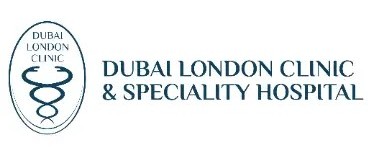Allergic Rhinitis in Dubai
What is Allergic Rhinitis?
An allergen is a chemical that induces an allergic response despite its otherwise benign nature. Hay fever, also known as allergic rhinitis, is an allergic reaction to particular allergens. In seasonal allergic rhinitis, pollen is the most frequent allergen. These are allergy symptoms that appear when the seasons change. Allergic rhinitis affects between 10-15% percent of the world’s population.
If you are looking for treatment for allergic rhinitis in Dubai, our ENT specialist, Dr. Mustafa Kapadia, can be your ideal choice. He has been in this field for many years now and is providing an appropriate line of treatment for all types of ENT issues.
Symptoms of Allergic Rhinitis:
- Bouts of Sneezing
- Nasal blockage and stuffiness
- An itchy nose
- Watery nasal discharge
- Altered sense of smell
- Facial pressure and headaches
When you come into touch with an allergen, you’ll generally experience one or more of these symptoms right away. Some symptoms, such as recurring headaches and tiredness, may appear only after long-term allergen exposure. Hay fever does not cause fever.
Some folks just have sporadic symptoms. This is more likely to happen when you’re exposed to a lot of allergens. Others have symptoms throughout the year. If your symptoms continue more than a few weeks and don’t appear to be better, consult your doctor for allergic rhinitis in Dubai.
Causes:
When your body is exposed to an allergen, it produces histamine, a natural molecule that protects your body from the allergen. Allergic rhinitis and associated symptoms, such as a runny nose, sneezing, and itchy eyes, can be caused by this substance.
Other frequent allergies, in addition to tree pollen, include:
- pollen from grass
- mites (dust mites)
- dander from animals, which is old skin
- the saliva of a cat
- mold
Pollen can be particularly bothersome during certain seasons of the year. Pollen from trees and flowers is more prevalent in the spring. In the summer and fall, grasses and weeds generate more pollen.

Risk factors involved in Allergic Rhinitis:
If your family has a history of allergies, you’re more likely to get allergic rhinitis. Allergic rhinitis is more likely if you have asthma or atopic eczema.
How is Allergic Rhinitis in Dubai Diagnosed?
Your treating physician will take complete symptom history and perform clinical examination. He might do a Nasal endoscopy to look at the severity of allergic rhinitis in Dubai and to rule out sinusitis and nasal polyps. If he suspects any sinus involvement then he might ask you to get a CT scan of your sinuses.
Physicians may suggest specific allergic tests to determine the causative agent for your allergies and plan best treatment and preventive strategy for you.
One of the most popular tests is a skin prick test. Your doctor will apply a variety of chemicals to your skin to observe how they affect your body. If you’re allergic to anything, you’ll usually get a tiny red bump.
A blood test, commonly known as a RAST (radioallergosorbent test), is also frequent. The RAST tests your blood for the presence of immunoglobulin E antibodies to certain allergens.
Over the counter medication for Allergic Rhinitis:
Drugs for cold, nasal congestion, URTI and nasal allergies constitute one of the major groups of drugs sold over the counter without prescriptions. These drugs are very helpful in relieving nasal symptoms instantly but they don’t cure nasal allergies.
- Antihistamines: Histamine is one of the most important chemical substances released in response to exposure to allergens. Antihistamine medication blocks this action and helps in relieving patient symptoms. Common over the counter antihistamines are Zyrtec, claritine, telfast.
- Oral Decongestants: Nose and sinus lining has abundant blood supply and nasal congestion occurs due to swelling and dilatation of these blood vessels. The primary action of decongestant is to cause constriction of these blood vessels leading to reduction in nasal lining swelling and improving nasal airway. Decongestants are chemically related to adrenaline and might cause some elevation in heart rate and blood pressure. Common over the counter decongestants are phenylephrine and pseudoephedrine.
- Nasal Decongestant drops/sprays: These over the counter nasal decongestant sprays work in the same manner by causing constriction of the blood vessels and improving nasal airflow. These provide immediate relief to the patient but it has a “ Rebound- congestion” effect which is very unpleasant and undesirable. If a patient uses it on a regular basis and for longer than as prescribed by the physician then it develops a cycle of “Spray- Decongestion- Rebound Congestion – Spray ”. This can lead to addiction and the patient’s nasal airway improves only after using these sprays. This condition is called “Rhinitis Medicamentosa”.
- Nasal Steroid spray: Steroids have very good anti-inflammatory action and these are the mainstay of treatment for Allergic rhinitis. Allergic rhinitis causes chronic inflammation and swelling of the sino-nasal lining and steroid nasal spray relieves patients of all the long term symptoms. Over the counter steroid nasal spray available are Avamys, Rinoclenil, Nasonex etc.






